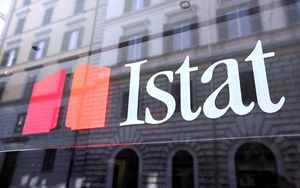(Finance) – The Irpef reform, the single and universal allowance for dependent children, the one-off allowances of 200 and 150 euros, the bonuses for electricity and gas bills and the advance of the revaluation of pensions have contributed to reduce the inequality (measured by the Gini index) from 30.4% to 29.6%, and the risk of poverty from 18.6% to 16.8%. This is what emerged in a report byIstat on the redistribution of the income doli public interventions on household incomes this year. The set of measures reduced the risk of poverty for families with minor children, both couples (-4.3 percentage points) and single parents (-4.2 percentage points), especially following the introduction of the single allowance
As for the Irpef reform contained in the 2022 Budget Law, the Statistical Institute calculated that for 64.9% of families that improved their situation, the benefit medium is 828 euros, while for 21.8% of families who suffered a loss, this was on average 824 euros. With the Irpef reform, the reduction of the risk of poverty that has affected families single components (-2.1 points) and the over sixty-five alone (-1.3 points) is linked above all to bonuses and the advance of the revaluation of pensions. By contrast, for families with no children or only with adult children, the risk of poverty remains almost unchanged or increases slightly.
The introduction ofsingle check instead, he left the situation income for 66.4% of families compared to the past, when there were allowances for the family nucleus. 24.3% improved their situation – average benefit equal to 1,714 euros (about 143 euros per month) -, while 9.3% made it worse (the average loss is equal to 591 euros, about 50 euros per month). The highest loss occurs between the richest households and the poorest households in this group, for whom the household allowance was higher than the new single allowance.
Against the negative effects of inflation and support the purchasing power of pensions has been brought forward revaluation of pensions for four months in 2022. The average amount of the benefit is equal to 113 euros and involved 44.9% of families. The benefit is higher in the third and penultimate fifth (128 and 140 euros respectively), where more than 26% of the total benefit is concentrated. The highest number of beneficiary families is observed in the central fifth, equal to 51.3% of the total. The poorest fifth had an average benefit of 69 euros with 30.2% of families involved.
As for the impact of bonuses for electricity and gas, the 150 euro allowance put in place to help low-income families and the 200 euro allowance which also involved individuals with above-average incomes, Istat has calculated that the bonuses – equal at an average of 404 euros a year – concerned three quarters of families (75.6%) and are concentrated in the poorest two fifths, to whom 66.4% of the total expenditure is destined. The bonuses have a marked redistributive profile: in the poorest fifth, the average annual benefit is equal to 749 euros.
